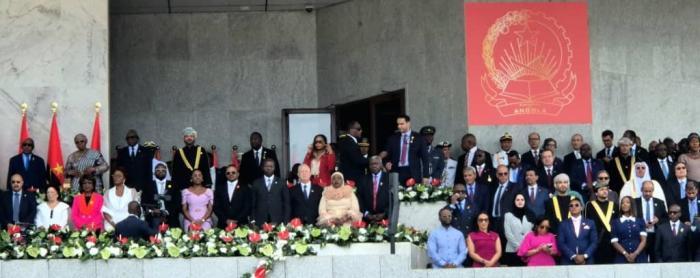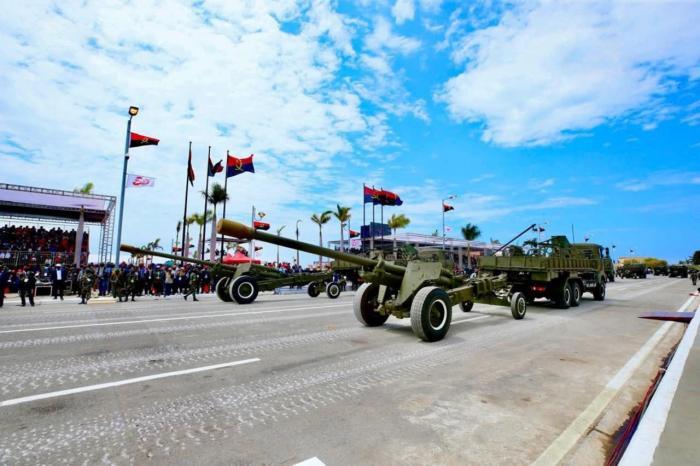
On November 11th, Angola celebrated half a century of national independence in an event marked by popular jubilation that unleashed the creativity, enthusiasm, and national pride of different generations of the people of this sister African nation.
The main event commemorating the 50th anniversary of national independence, held on Tuesday in Luanda's Republic Square and attended by more than a dozen heads of state and government and other senior leaders from various nations, was attended by a Cuban delegation headed by Esteban Lazo Hernández, member of the Political Bureau of the Party's Central Committee and president of the National Assembly of People's Power and the Council of State. Esteban Lazo Hernández, president of the National Assembly of People's Power and the Council of State, which was warmly applauded by those present at this event when the foreign delegations were introduced, as a genuine sign of the affection of the brotherly Angolan people towards the largest of the Antilles.
Our country's internationalist epic, especially during the heroic Operation Carlota, was an enduring page of altruism and solidarity, whose contribution was decisive in preserving and consolidating Angola's independence and achieving that of Namibia, as well as making a significant contribution to the demise of the apartheid regime.
In his speech at the main event, João Manuel Gonçalves Lourenço, President of the Republic of Angola, made special mention of Cuba's internationalist contribution to the most just causes in Africa. "Brave young Angolan and Cuban fighters shed their blood to rescue the dignity of the peoples of South Africa and Namibia, and freed humanity from the long nightmare that was the apartheid regime," said the Head of State in his speech.
During the main ceremony, the commemorative medal for the 50th anniversary of national independence was awarded posthumously in its highest class, "Honor," to Agostinho Neto, the first president of Angola. Likewise, a civic parade was held in the Plaza de la República, representing the different social sectors, provinces, and cultural traditions of the country, followed by a military parade of 17 blocks displaying the weapons and technology, as well as the land, air, and naval resources of the sister African country.
On November 11th, Esteban Lazo also spoke with the presidents of Namibia, Netumbo Nandi-Ndaitwah; the Republic of Congo, Denis Sassou-N'Guesso; São Tomé and Príncipe, Carlos Vila Nova; Cape Verde, José Maria Pereira Neves; Portugal, Marcelo Rebelo de Sousa; and the Prime Minister of the Democratic Republic of Congo, Judith Suminwa Tuluka.
He also spoke with several former presidents of African nations present at the event, whom he thanked for their countries' unwavering stance against the economic, commercial, and financial blockade imposed by the United States government against Cuba. In addition, during the day, Lazo Hernández held a meeting with Brahim Ghali, president of the Sahrawi Arab Democratic Republic (SADR) and secretary general of the Polisario Front, in which he reaffirmed his solidarity with the Sahrawi people.









